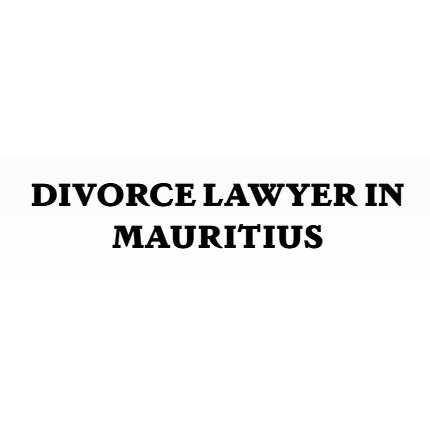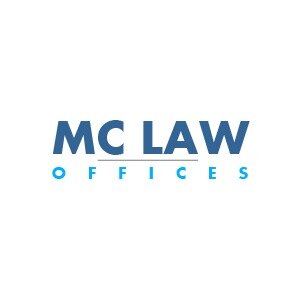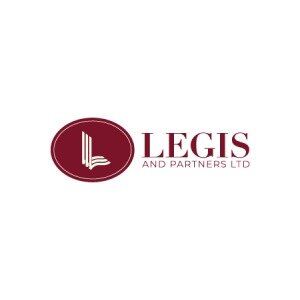Best FDA Law Lawyers in Port Louis
Share your needs with us, get contacted by law firms.
Free. Takes 2 min.
List of the best lawyers in Port Louis, Mauritius
About FDA Law in Port Louis, Mauritius
FDA Law in Port Louis, Mauritius, governs the regulation, approval, importation, distribution, and sale of food products, pharmaceuticals, medical devices, and cosmetics. The legal framework ensures that such products are safe for public consumption, meet local and international quality standards, and are accurately labeled. While Mauritius does not have a single body named "FDA" as in other countries, the responsibilities are typically handled by agencies under the Ministry of Health and Wellness as well as the Ministry of Agro Industry and Food Security. Compliance with FDA-related regulations is crucial for businesses and individuals engaged in the production, distribution, or sale of these regulated products.
Why You May Need a Lawyer
Dealing with FDA Law in Port Louis can be complex due to numerous regulations, overlapping authorities, and stringent requirements. You may need a lawyer in situations such as:
- Importing food, drugs, or medical devices into Mauritius
- Registering a new pharmaceutical product or dietary supplement
- Obtaining licenses for the manufacture or distribution of regulated products
- Responding to inspections, audits, or enforcement actions by local authorities
- Appealing denied registrations or sanctions
- Advice on labelling and advertising requirements for consumer safety
- Addressing liability claims due to defective or harmful products
- Navigating clinical trial requirements or research approvals
Legal assistance ensures compliance, protects your business interests, and helps mitigate risks associated with non-compliance.
Local Laws Overview
The regulation of food, drugs, and allied products in Port Louis falls under several legislative acts, with oversight from various governmental bodies:
- Food Act 1998: Regulates the safety, labelling, and sale of food items.
- Pharmacy Act 1983: Governs the import, manufacture, distribution, and sale of pharmaceuticals and medicaments.
- Dangerous Drugs Act 2000: Controls importation and handling of narcotic and psychotropic substances.
- Consumer Protection Act: Involves provisions for misleading advertising and product safety standards.
- Ministry of Health and Wellness: Primarily responsible for enforcement and oversight related to public health issues.
- Customs Act: Involves regulation and inspection of imported goods at points of entry.
Manufacturers, importers, and distributors must obtain approvals, comply with rigorous documentation, and adhere to ongoing inspection regimes. Non-compliance can lead to sanctions, product seizures, and financial penalties.
Frequently Asked Questions
What types of products are regulated under FDA Law in Mauritius?
Products regulated include food and beverages, prescription and over-the-counter drugs, traditional medicines, cosmetics, and medical devices.
Do I need a license to import pharmaceutical products?
Yes, you must obtain a license from the Pharmacy Board and other relevant authorities before importing any pharmaceutical product.
How are food products regulated in Port Louis?
Food products are regulated under the Food Act, which covers safety, hygiene, labelling, and permissible additives. Inspections and testing are routinely conducted.
Are there specific labelling requirements for food and drugs in Mauritius?
Yes, all products must be labelled in accordance with local regulations, including ingredient lists, expiration dates, manufacturing details, and appropriate warnings.
What should I do if my product is seized by customs?
Contact a qualified FDA Law lawyer immediately. You may need to provide further documentation, rectify non-compliant labelling, or appeal the seizure through proper administrative channels.
Can I advertise health products directly to consumers?
Advertising is strictly regulated and must not be misleading or make unauthorized health claims. Prior approval from relevant authorities may be required.
How long does product registration take?
The process duration varies depending on the product category, complexity, and completeness of documentation, but can range from several weeks to a few months.
What are the penalties for non-compliance with FDA Law?
Penalties can include fines, product recall, business closure, and in severe cases, criminal liability for responsible parties.
Are foreign-made products treated differently under FDA Law?
Foreign-made products must still comply with Mauritius standards. They are subject to registration, inspection, and labelling requirements just like locally made products.
What steps should I follow to register a new health or food product?
Prepare detailed product information, safety certifications, and compliance documentation. Submit your application to the relevant regulatory body, and respond promptly to any requests for additional information.
Additional Resources
If you need further information or assistance, consider reaching out to the following organizations and government agencies:
- Ministry of Health and Wellness
- Pharmacy Board of Mauritius
- Food Import Unit (Ministry of Agro Industry and Food Security)
- Mauritius Chamber of Commerce and Industry
- Bureau of Standards (MSB) for technical and safety standards
- Office of the Director of Public Prosecutions (for enforcement issues)
These bodies can provide specific guidelines and the latest requirements for FDA-regulated products.
Next Steps
If you require legal help with FDA Law issues in Port Louis, Mauritius:
- Gather all documentation related to your product, import or registration process.
- Consult a lawyer who specializes in FDA Law or regulatory compliance to review your case.
- Ask about the specific steps and documents needed for compliance or to address legal challenges.
- Follow the lawyer’s guidance closely to avoid regulatory pitfalls and streamline approvals.
- Stay updated on changes in local laws and regulations to ensure ongoing compliance.
Taking these steps can help protect your business and ensure your products reach the Mauritian market without unforeseen legal obstacles.
Lawzana helps you find the best lawyers and law firms in Port Louis through a curated and pre-screened list of qualified legal professionals. Our platform offers rankings and detailed profiles of attorneys and law firms, allowing you to compare based on practice areas, including FDA Law, experience, and client feedback.
Each profile includes a description of the firm's areas of practice, client reviews, team members and partners, year of establishment, spoken languages, office locations, contact information, social media presence, and any published articles or resources. Most firms on our platform speak English and are experienced in both local and international legal matters.
Get a quote from top-rated law firms in Port Louis, Mauritius — quickly, securely, and without unnecessary hassle.
Disclaimer:
The information provided on this page is for general informational purposes only and does not constitute legal advice. While we strive to ensure the accuracy and relevance of the content, legal information may change over time, and interpretations of the law can vary. You should always consult with a qualified legal professional for advice specific to your situation.
We disclaim all liability for actions taken or not taken based on the content of this page. If you believe any information is incorrect or outdated, please contact us, and we will review and update it where appropriate.















